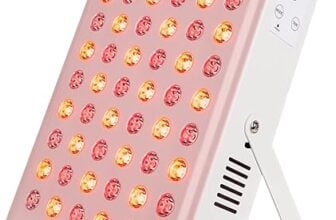In today’s fast-paced world, taking the time for facial care is essential for maintaining healthy, radiant skin. Proper facial care not only enhances your appearance but also boosts your confidence and overall well-being. This comprehensive guide will walk you through the fundamentals of skincare, starting with understanding your skin type, establishing a daily skincare routine, and incorporating weekly treatments such as exfoliation and masks.
Understanding your skin type is the first critical step in any skincare regimen. Whether you have oily, dry, combination, or sensitive skin, knowing this allows you to select products that will work best for you. Establishing a daily skincare routine involves cleansing, toning, and moisturizing, which helps to remove impurities, balance your skin’s pH, and keep it hydrated.
In addition to your daily routine, incorporating weekly treatments can significantly enhance your skin’s health and appearance. Exfoliation helps to remove dead skin cells and promote cell turnover, while masks can provide deep hydration, detoxification, or anti-aging benefits depending on their ingredients.
Moreover, we will share valuable lifestyle tips for keeping your skin in top condition. Eating a balanced diet rich in vitamins and antioxidants, staying hydrated, getting enough sleep, and protecting your skin from the sun are all essential habits for maintaining healthy skin. Additionally, we’ll discuss common skincare mistakes to avoid, such as over-exfoliating, using products with harsh ingredients, and neglecting to remove makeup before bed.
By following these best practices, you can ensure your skin stays healthy and glowing. Investing time in proper facial care is not just about looking good; it’s about feeling good and taking care of your overall health.
Understanding Your Skin Type
Understanding your skin type is foundational for any effective skincare routine. Skin types generally fall into five categories: oily, dry, combination, sensitive, and normal.
Oily skin is characterized by a shiny appearance and larger pores, often prone to acne and blackheads due to excess sebum production.
Dry skin, on the other hand, tends to feel tight, rough, or flaky, especially after cleansing, as it struggles to retain moisture. Combination skin features a mix of oily and dry areas, typically with an oily T-zone (forehead, nose, and chin) and drier cheeks.
Sensitive skin is prone to redness, and irritation, and may react adversely to certain ingredients or environmental factors. Normal skin is well-balanced, neither too oily nor too dry, with a smooth texture and minimal blemishes.
To identify your skin type, start by observing its appearance and how it feels at different times of the day, especially after cleansing. You can also conduct a simple test by washing your face, waiting an hour, and then pressing a tissue against different areas to see where oil residue appears.
This knowledge empowers you to select skincare products tailored to your unique needs, setting the stage for healthier, more radiant skin.
Daily Skincare Routine
1. Cleansing
Cleansing is the cornerstone of any effective daily skincare routine. It serves the crucial function of removing dirt, oil, makeup, and other impurities that accumulate on your skin throughout the day. Proper cleansing helps to unclog pores, preventing breakouts and promoting a clear complexion.
When selecting a facial cleanser, it’s essential to choose one that suits your skin type. For example, gel-based cleansers are often ideal for oily or acne-prone skin, as they help to control sebum production, while cream-based cleansers are more suitable for dry or sensitive skin, providing necessary hydration without stripping away natural oils.
It’s advisable to cleanse your face twice daily—in the morning to remove night-time oils and at night to clear daytime grime. Use lukewarm water to open up your pores and a gentle, circular motion to apply the cleanser, ensuring thorough coverage.
Finally, rinse thoroughly and pat your face dry with a clean towel. Adhering to these best practices can significantly enhance your skin’s health and prepare it to absorb subsequent skincare products effectively.
2. Toning
Toning is a vital, yet often overlooked, step in the daily skincare routine. Toners play a crucial role in maintaining your skin’s pH balance, removing any residual impurities, and preparing your skin to better absorb subsequent products such as serums and moisturizers. When selecting a toner, it’s important to choose one that aligns with your specific skin type.
For oily or acne-prone skin, opt for a toner that contains ingredients like salicylic acid or witch hazel to help control excess oil and minimize pores. Those with dry or sensitive skin should look for hydrating toners containing soothing agents such as hyaluronic acid, rose water, or aloe vera to ensure moisture retention and calm irritation.
Combination skin can benefit from a balancing toner that helps normalize both oily and dry areas. To apply a toner, simply soak a cotton pad with the product and gently swipe it over your face and neck after cleansing. This will help to remove any lingering traces of cleanser or makeup, leaving your skin refreshed and primed for the next steps in your skincare regimen.
3. Moisturizing
Moisturizing is an indispensable step in any daily skincare routine, offering a multitude of benefits that are essential for maintaining healthy, vibrant skin. A good moisturizer forms a protective barrier on the skin’s surface, sealing in hydration and preventing moisture loss. This helps to maintain skin elasticity, reduce the appearance of fine lines and wrinkles, and protect against environmental aggressors such as pollution and harsh weather.
When selecting a moisturizer, it’s critical to choose one that aligns with your skin type to maximize its benefits. For oily or acne-prone skin, a lightweight, non-comedogenic moisturizer with ingredients like hyaluronic acid or glycerin can provide ample hydration without clogging pores.
Dry skin types benefit from richer, cream-based moisturizers containing emollients like shea butter or ceramides, which help to lock in moisture and replenish the skin’s lipid barrier. Those with combination skin should look for a balanced formula that offers hydration without being too heavy or greasy.
For sensitive skin, opt for moisturizers with soothing ingredients such as aloe vera, chamomile, or oatmeal, which can help to calm irritation and reduce inflammation.
By selecting the appropriate moisturizer for your skin type and incorporating it into your daily routine, you can ensure your skin remains supple, hydrated, and resilient.
Weekly Skincare Treatments
1. Exfoliation
Exfoliation is a crucial component of any weekly skincare routine, playing a significant role in maintaining a clear, radiant complexion. By removing dead skin cells that accumulate on the skin’s surface, exfoliation helps to unclog pores, prevent breakouts, and enhance the absorption of other skincare products. There are two primary methods of exfoliation: physical and chemical.
Physical exfoliation involves using scrubs or brushes to manually slough off dead skin cells. While effective, it’s essential to choose gentle, non-abrasive scrubs to avoid irritating the skin.
Chemical exfoliation, on the other hand, employs acids like glycolic, salicylic, or lactic acid to dissolve the bonds between dead skin cells, allowing them to be shed more easily. This method is often more suitable for sensitive skin as it provides a deeper yet gentler exfoliation.
Incorporating exfoliation into your routine 1-2 times a week can significantly improve skin texture, clarity, and overall health, revealing a smoother, more luminous appearance.
2. Face Masks
Face masks are an excellent addition to your weekly skincare treatments, offering a variety of benefits tailored to different skin concerns. Incorporating face masks into your routine can deeply cleanse pores, hydrate the skin, and provide targeted treatment for issues such as acne, dryness, or uneven skin tone.
There are several types of face masks available, each suitable for specific needs.
Clay masks are ideal for oily or acne-prone skin, as they help to absorb excess oil and draw out impurities.
Hydrating masks, often infused with ingredients like hyaluronic acid or aloe vera, are perfect for dry skin, providing an intense boost of moisture. For those dealing with dullness or hyperpigmentation, brightening masks containing ingredients such as vitamin C or glycolic acid can help to even out skin tone and boost radiance.
Additionally, soothing masks with calming ingredients like chamomile or oatmeal are great for sensitive skin, reducing redness and irritation.
By selecting the right type of face mask for your skin concerns and incorporating it into your weekly regimen, you can achieve noticeable improvements in your skin’s health and appearance.
Lifestyle Tips for Healthy Skin
Achieving and maintaining healthy skin goes beyond skincare products; it involves adopting a holistic approach that includes proper hydration, a balanced diet, adequate sleep, regular exercise, and effective stress management.
Drinking plenty of water throughout the day is crucial, as it helps to keep your skin hydrated from within, enhancing its elasticity and natural glow. A well-rounded diet rich in fruits, vegetables, lean proteins, and healthy fats provides essential vitamins and nutrients that support skin health, such as vitamins A, C, and E, and omega-3 fatty acids.
Equally important is getting enough sleep, as your body undergoes repair and regeneration processes during rest, leading to a clearer, more vibrant complexion. Regular exercise boosts circulation, delivering oxygen and nutrients to the skin, while also promoting the removal of toxins through sweat.
Lastly, managing stress through practices like meditation, yoga, or engaging in hobbies can significantly impact skin health by reducing the risk of stress-related skin issues such as acne or eczema.
By integrating these lifestyle habits into your daily routine, you can enhance your skin’s overall health and achieve a radiant, youthful appearance.
Common Skincare Mistakes to Avoid
Over-Exfoliating
While exfoliation is beneficial for removing dead skin cells and promoting a smooth complexion, over-exfoliating can lead to a host of problems. Excessive exfoliation can strip the skin of its natural oils, leading to dryness, irritation, and an impaired skin barrier. This can make the skin more susceptible to environmental aggressors and cause issues like redness and sensitivity.
To prevent over-exfoliating, it’s important to limit exfoliation to 1-2 times a week, using gentle products suitable for your skin type. Listening to your skin and adjusting the frequency or type of exfoliator can help maintain a healthy, balanced complexion.
Skipping Sunscreen
One of the most critical steps in any skincare routine is often the most overlooked: sunscreen. Neglecting to apply sunscreen daily can expose your skin to harmful UV rays, leading to premature aging, hyperpigmentation, and an increased risk of skin cancer. It’s important to use a broad-spectrum sunscreen with at least SPF 30 every day, regardless of the weather or season.
Even on cloudy days, UV rays can penetrate the skin and cause damage. By incorporating sunscreen into your daily routine, you can protect your skin from harmful UVA and UVB rays, preserving its health and appearance.
Using Too Many Products
While it may be tempting to try multiple skincare products to achieve the perfect complexion, using too many products can overwhelm and irritate the skin. Layering numerous treatments, serums, and creams can lead to ingredient interactions that may cause breakouts, redness, or other skin issues. A streamlined skincare routine with a few well-chosen products tailored to your skin’s needs is often more effective than an overly complex regimen.
Start with the basics: cleanser, moisturizer, and sunscreen, and then gradually introduce additional treatments as needed. This approach ensures that your skin receives the benefits of each product without becoming overburdened.
By being mindful of these common skincare mistakes and making thoughtful adjustments to your routine, you can ensure your skin remains healthy, radiant, and resilient.
Conclusion
In summary, a consistent and thoughtful skincare routine can lead to noticeable improvements in your skin’s health and appearance. Key points to remember include incorporating gentle exfoliation, using targeted face masks, and adopting holistic lifestyle habits such as proper hydration, a balanced diet, adequate sleep, regular exercise, and effective stress management.
Additionally, avoiding common mistakes such as over-exfoliating, skipping sunscreen, and using too many products can help maintain a balanced and radiant complexion.
Adopting a consistent skincare routine might seem daunting at first, but with a few dedicated steps, you can set yourself up for long-term success. Remember, the journey to healthy skin is a marathon, not a sprint, and the commitment you make today will pay off in the future.
We invite you to share your experiences, questions, and tips in the comments below. Your insights and queries will not only help you but also aid others in their skincare journeys. Let’s learn and grow together for healthier, more radiant skin!
Recommended Skincare Products
Choosing the right skincare products can greatly enhance your routine and address specific skin concerns. Below are some highly recommended products to consider:
1- Cleanser:
- Cetaphil Gentle Skin Cleanser – Ideal for all skin types, known for its gentle and effective formula.
- CeraVe Hydrating Cleanser – Perfect for dry skin, helps to maintain the skin’s natural moisture barrier.
2- Moisturizer:
- Neutrogena Hydro Boost Water Gel – Lightweight and non-greasy, suitable for normal to oily skin.
- La Roche-Posay Toleriane Double Repair Face Moisturizer – Great for sensitive skin, and provides long-lasting hydration.
3- Sunscreen:
- EltaMD UV Clear Broad-Spectrum SPF 46 – Broad-spectrum protection, suitable for acne-prone skin.
- La Roche-Posay Anthelios Melt-in Milk Sunscreen SPF 60 – High protection, ideal for all skin types.
4- Exfoliator:
- Paula’s Choice Skin Perfecting 2% BHA Liquid Exfoliant – Gently unclogs pores and smooths skin texture.
- The Ordinary Glycolic Acid 7% Toning Solution – Exfoliates and brightens the skin, suitable for all skin types.
5- Serum:
- The Ordinary Hyaluronic Acid 2% + B5 – Hydrates and plumps the skin, ideal for all skin types.
- SkinCeuticals C E Ferulic – Potent antioxidant serum with vitamin C, excellent for anti-aging.
Links to Further Reading and Reputable Skincare Guides
For those looking to delve deeper into skincare and expand their knowledge, here are some valuable resources:
- The Skin Care Foundation – Offers comprehensive information on skin health, sun protection, and skin cancer prevention.
- American Academy of Dermatology (AAD) – A trusted source for various skin concerns, treatment options, and educational materials.
- Dermstore Skin Care Guide – Covers a wide range of topics from basic skincare routines to advanced treatments and best-product recommendations.
By utilizing these resources and carefully selecting products that cater to your specific skin type and concerns, you can create a personalized skincare regimen that promotes healthy, glowing skin.





